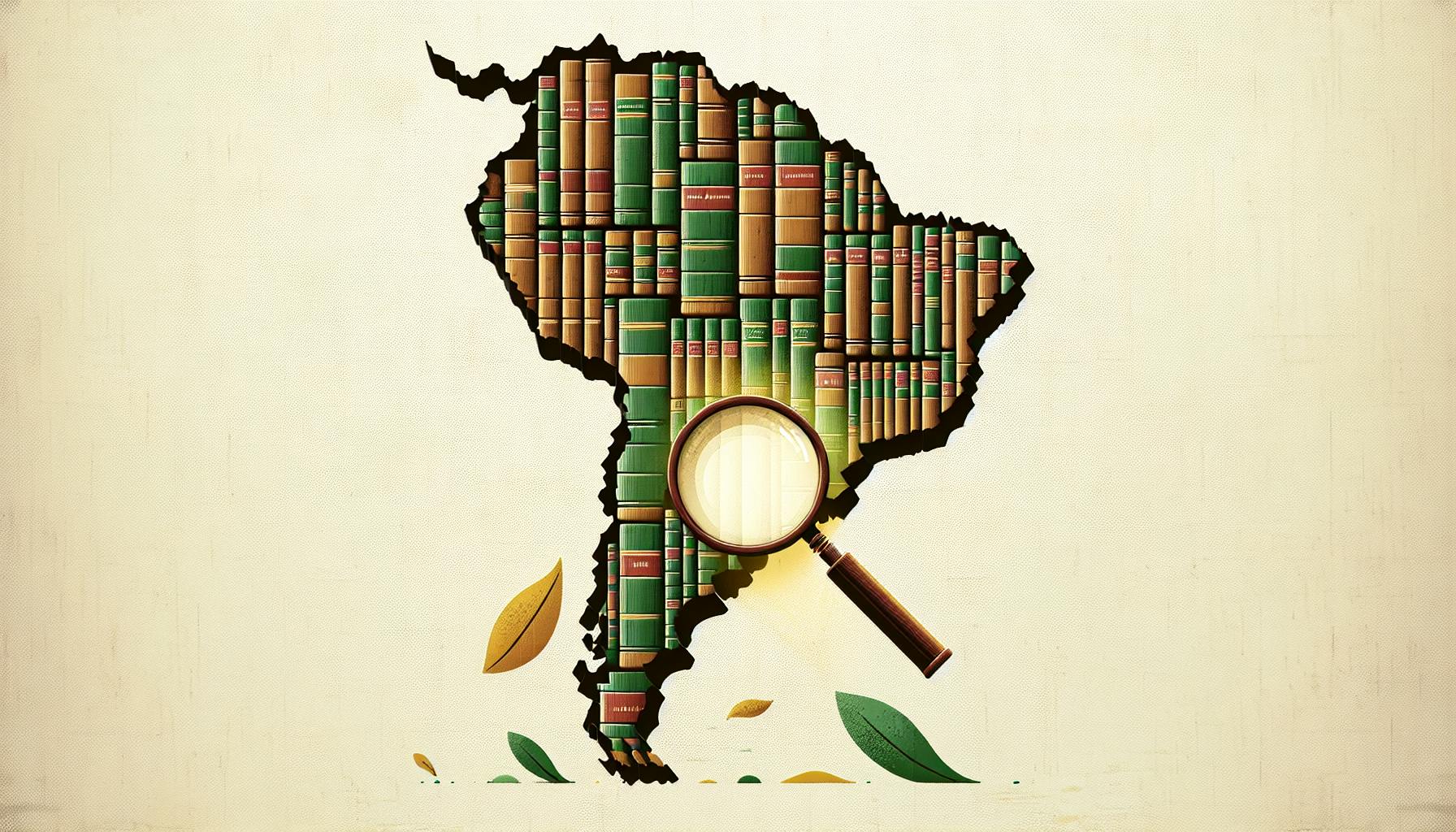Protecting children online is a complex issue with reasonable arguments on multiple sides.
This article will provide an informative legal analysis of the Child Online Protection Act, exploring its background, provisions, status, and relationship to related laws aimed at safeguarding minors in the digital realm.
We will examine the genesis of COPA, key court decisions evaluating its constitutionality, how it compares to acts like COPPA, and what its legacy means for the future of child safety legislation in the internet age.
Understanding the Child Online Protection Act
The Child Online Protection Act (COPA) was passed in 1998 to protect minors from harmful content on the Internet. This introductory section will provide background on COPA, summarize its key provisions, and explain why it was ruled unconstitutional.
The Genesis of the Child Online Protection Act
In the late 1990s, concerns grew over minors' access to obscene and sexually explicit content online. COPA was introduced in Congress as a means to restrict access to such material that was considered "harmful to minors". The Act aimed to build upon and clarify the Communications Decency Act, which had been largely struck down as unconstitutional just two years prior.
COPA imposed new regulations on commercial website operators to age-verify users and limit minors' exposure to inappropriate content. Supporters argued COPA was necessary to shield children from the rapidly growing amount of pornography and violent content online. Critics raised free speech concerns and questioned the law's broad scope.
Analyzing the Provisions of the Child Online Protection Act
COPA made it illegal for commercial website operators to knowingly allow minors under 17 to access "material that is harmful to minors", including content that is obscene or contains child pornography.
To comply, website operators were expected to collect a credit card or adult verification to restrict access to such content. COPA also included a "harmful to minors" standard aimed at material without serious literary, artistic, political or scientific value.
Penalties for violations included fines of up to $50,000 and up to 6 months imprisonment.
Constitutional Scrutiny: From Ashcroft v. ACLU to the Supreme Court
Soon after COPA became law in 1998, the ACLU and other groups filed a lawsuit claiming it violated the First Amendment rights of adults. In Ashcroft v. ACLU, the Supreme Court held that while protecting children from harm is a compelling interest, COPA's broad definitions and restrictions were likely unconstitutional.
The case bounced between appeals courts and the Supreme Court for years. While courts upheld the law's goals, they found that less restrictive alternatives existed to achieve COPA's aims. The law was ultimately struck down as unconstitutional in 2009.
The Current Status: Is the Child Online Protection Act Still in Effect?
While parts of COPA remain codified in sections of the U.S. Code, the law has effectively been invalidated by the courts. The COPPA law passed in 2000 regulates how websites and apps handle data collection from children under 13.
COPA faced criticism for its broad scope, but the debates surrounding its passage influenced later attempts to legislate Internet content. Its legacy continues to shape discussions around protecting minors online while respecting free speech rights.
What does the Child Online Protection Act do?
The Child Online Protection Act (COPA) was a law passed in 1998 that aimed to protect minors from harmful or obscene content on the Internet. Specifically, COPA prohibited website operators from knowingly posting content that is considered "harmful to minors" without implementing age verification systems.
Some key things to know about COPA:
- It applied to commercial website operators only, not individuals posting content online.
- It defined "harmful to minors" broadly as any communication that is obscene or that depicts sexual or excretory activities.
- It mandated that operators of such websites implement an age verification system to restrict access to minors.
- Violations were punishable by fines up to $50,000 and up to 6 months in prison.
However, COPA was never enforced as it was challenged in courts and found to impose an undue burden on protected speech under the First Amendment. Key cases like Ashcroft v. ACLU ultimately led to COPA being struck down as unconstitutional.
While aspects of COPA were well-intentioned to protect children online, legal experts argued it was too broad and vague in its speech restrictions. Its legacy stands as an example of the complex balance lawmakers face between safety and speech rights on the Internet.
What does the children's Internet Protection Act do?
The Children's Internet Protection Act (CIPA) is a federal law enacted in 2000 to address concerns about access in schools and libraries to offensive content on the Internet. The key measures under CIPA include:
-
Requiring schools and libraries to implement technology protection measures, such as Internet filters, to block access to visual depictions deemed obscene, child pornography, or harmful to minors.
-
Schools and libraries must certify they are using Internet filters and enforcing online safety policies to receive E-rate funding and certain federal grants under CIPA.
-
The law does allow for filters to be disabled by an authorized person for bona fide research or other lawful purposes by adults.
-
CIPA does not mandate tracking of individual's Internet use or browsing history. It focuses specifically on limiting access to inappropriate visual content that may be harmful to minors.
In summary, CIPA establishes baseline federal standards for Internet safety policies and filtering in schools and libraries that wish to receive certain federal funding support. The law aims to restrict minor's access to obscene or harmful materials online while enabling access for legitimate research needs.
What is the summary of COPPA law?
The Children's Online Privacy Protection Act (COPPA) is a U.S. federal law designed to protect the privacy of children under 13 years old on the Internet. Here is a brief summary of key aspects of COPPA:
-
The primary goal of COPPA is to give parents control over what information websites and online services collect from their young children. It applies to sites and services directed at children under 13 or those which knowingly collect information from them.
-
Websites and online services covered under COPPA must post clear privacy policies explaining their information collection and use practices. These policies must provide details related to the types of personal information collected, whether it is shared with third parties, and how parents can review and delete their child's information.
-
Parental consent is required before collecting personal information from children under 13. Verifiable parental permission is needed for kids under 13 to sign up and use certain websites or online services.
-
COPPA gives parents the right to review and delete their children's personal information. Websites and services must provide a clear process for parents to access and remove any data collected from their child.
In summary, COPPA aims to ensure transparency from websites and give control to parents over their young child's online data collection. It places strict regulations on companies to obtain verifiable consent, provide parental access to information, and delete data upon request.
What is the protecting kids online act?
The "Kids Online Safety Act" (KOSA) aims to establish guidelines to better protect minors on social media platforms. This bipartisan bill was introduced in the United States Senate in February 2022 by Senators Richard Blumenthal (D‐CT) and Marsha Blackburn (R‐TN) and then reintroduced in May 2023.
The key components of the bill include:
-
Requiring social media platforms to conduct independent audits evaluating their impact on children and teens. This includes analysis of algorithms, design features, and data collection practices.
-
Mandating transparency for how platforms target content to young users. This includes detailing what data is collected and how it's used to recommend content.
-
Banning certain features for users under 16, such as auto-play video features, push alerts, and infinite scrolling. Platforms would also be barred from amplifying harmful content.
-
Giving parents more control over their children's accounts with tools to monitor screen time and limit friend connections.
-
Establishing a Youth Privacy and Marketing Division within the FTC to focus specifically on protecting minors online and enforcing regulations.
The goal is to address issues like social media addiction, exposure to inappropriate content, impact on mental health, and data privacy concerns. The bill aims to balance child safety with preserving access to educational resources and connections. Its future passage faces ongoing debate over free speech, innovation, and the role of government regulations.
sbb-itb-e93bf99
COPPA: The Children's Online Privacy Protection Act Summary
With COPA struck down, new approaches were needed to shield minors from inappropriate content. This section covers options like the Children’s Online Privacy Protection Act (COPPA).
Comparing COPPA with the Child Online Protection Act
COPPA and COPA take different approaches to protecting children online. While COPA aimed to restrict access to harmful content, COPPA focuses on safeguarding children's personal data.
Key differences:
-
Regulatory Scope: COPA targeted content hosts, while COPPA regulates data collection by websites and services used by children under 13.
-
Covered Content: COPA restricted sexual material, whereas COPPA governs collection and use of personally identifiable information.
-
Constitutionality: COPPA has withstood legal challenges, but courts ruled COPA imposed content restrictions violating First Amendment rights.
So COPPA takes a privacy-focused approach, compared to COPA's speech-restricting provisions later deemed unconstitutional.
COPPA and Data Privacy: Protecting Personal Information of Minors
COPPA requires websites/services directed at children under 13 to:
- Post privacy policies describing data collection and use
- Get verifiable parental consent before collecting personal information
- Allow parents to review and delete collected data
- Implement reasonable data security measures
This protects children's sensitive information like names, locations, contact details, identifiers tied to them, etc. from misuse.
FTC Enforcement of COPPA Regulations
The FTC enforces COPPA by:
- Auditing privacy policies and practices of child-directed sites
- Reviewing companies' COPPA compliance programs
- Investigating consumer complaints about potential COPPA violations
- Imposing fines and injunctions for non-compliance
Recent FTC COPPA actions involved musical.ly, YouTube, and advertising tech companies. Consent decree fines have exceeded $10+ million in some cases.
Navigating COPPA Compliance for Online Services
To comply with COPPA, websites and apps must:
- Designate an officer to coordinate compliance
- Train employees on COPPA requirements
- Establish processes for obtaining parental consent
- Only collect personal data needed for features/services
- Securely store information with access controls
- Honor parental requests to delete data
Following these privacy policy and data governance best practices helps mitigate regulatory risk.
The Intersection of Social Media and Online Safety for Minors
Social media platforms provide opportunities for connection and self-expression, but also present unique risks when it comes to protecting minors online. As technology continues to evolve, regulations aim to balance privacy and safety.
The Role of Social Media in the Child Online Protection Act 2020
The Child Online Protection Act (COPA) was found unconstitutional in 2009. Since COPA aimed to criminalize posting "harmful" content where children could access it, some argue it could have implications for social media platforms today. However, legislative approaches have shifted toward privacy protections rather than content restrictions.
Persistent Identifiers and Privacy on Social Media
Social media platforms frequently utilize persistent identifiers to track user data. While this enables customized experiences, it also raises privacy concerns - especially for minors. Regulations like COPPA require parental consent to collect personal data from children under 13. Still, many argue strengthened privacy protections are needed as more minors use social media.
Regulatory Review of Social Media Practices
Social media platforms have faced increasing regulatory scrutiny over their data collection and monitoring practices when it comes to minors. In 2019, YouTube was fined $170 million for violating COPPA by tracking viewing histories of children without parental consent. Events like these have led many regulators to push for stronger data governance policies around issues like consent, transparency and data minimization.
Social Media and the Fight Against Internet Pornography and Obscenity
While COPA took a prohibitive approach toward restricting access to adult content, social media platforms today rely more on community policing, age verification mechanisms and AI to detect policy violations. However, the spread of objectionable content remains an issue. More collaboration between platforms and regulators could strengthen approaches balancing safety and speech.
Legal Evolution: From the Communications Decency Act to the Child Online Protection Act
The legal landscape surrounding online child protection has evolved significantly over the past few decades. Various statutes and regulations have attempted to address concerns around protecting minors on the Internet. This section will provide an overview of key developments, focusing on the factual and practical implications.
The Legacy of Reno v. ACLU on Internet Free Speech and Child Protection
The 1997 Supreme Court case Reno v. ACLU was a landmark decision regarding online free speech. The Court ruled that provisions of the Communications Decency Act (CDA) violated the First Amendment by being too broad and limiting adults' access to constitutionally protected speech. This set the stage for subsequent legislation like the Child Online Protection Act (COPA) to be narrowly tailored.
The Communications Decency Act and Its Influence on COPA
The CDA was enacted in 1996 to restrict access to offensive material online. After the Reno ruling, COPA was introduced in 1998 as a more targeted approach, criminalizing commercial websites that knowingly made harmful content accessible to minors. However, COPA also faced legal challenges and was blocked from taking effect. The CDA/COPA example highlighted the complex balance between child protection and free speech.
Statutes and Enforcement: The Role of the FTC Act in Online Child Protection
The Federal Trade Commission (FTC) Act prohibits unfair and deceptive business practices. The FTC leverages this authority to enforce online privacy protections for children, including the Children’s Online Privacy Protection Act (COPPA). COPPA requires websites/services directed at children under 13 to obtain verifiable parental consent before collecting personal data. Violations can result in FTC fines.
Litigation and Injunctions: The Legal Tools in Protecting Minors Online
Beyond regulatory enforcement, civil litigation and court injunctions have also emerged as tools to promote online child safety. Groups like the American Civil Liberties Union have successfully sued tech companies over allegations of unlawful data collection from minors. Such lawsuits can drive improved privacy protections, in some cases through negotiated legal settlements.
The Future of Child Online Protection Legislation
As technology and online platforms continue to evolve, legislation governing child online protection must also adapt. This section explores potential future developments that could strengthen protections for minors online.
Anticipating the Child Online Protection Act 2023 and Beyond
-
New legislation in 2023 could expand privacy safeguards for minors under 16, limiting data collection and targeting practices by online platforms.
-
Bills may emerge to update children's privacy laws to cover new technologies like voice assistants, wearables, and Internet of Things devices that collect personal data.
-
Lawmakers continue focusing on bipartisan solutions to shield minors from inappropriate content and data exploitation.
Innovations in Data Protection and Privacy Law
-
Advances in privacy-preserving data analysis may enable online safety measures while reducing risks of excessive data collection.
-
As consumer expectations grow, regulations could require transparent privacy policies and consent flows before platforms access children's data.
-
Standardized age verification methods may emerge to accurately confirm minors online without excessive personal data collection.
Consumer Privacy and the Next Generation of Privacy Laws
-
Surging demand for consumer privacy protections could drive new regulations on commercial data practices affecting children.
-
Comprehensive federal privacy legislation may finally emerge to harmonize protections for minors across sectors and states.
-
Parents and advocates are pressuring lawmakers to enhance children's privacy safeguards amid growing data exploitation concerns.
The Role of International Regulations on US Child Online Protection
-
As the digital economy globalizes, US regulations often align with international data protection standards like GDPR.
-
Cross-border privacy agreements could influence updated US laws to handle data transfers affecting minors.
-
Comparative policy analyses help inform legislative proposals on topics like age verification, parental consent requirements, and privacy transparency.
Conclusion: Synthesizing the Child Online Protection Act's Legacy
The Child Online Protection Act (COPA) was passed in 1998 in an attempt to protect minors from harmful content on the Internet. It aimed to criminalize posting "material that is harmful to minors" on commercial websites. However, COPA faced multiple legal challenges and was ultimately found unconstitutional by the Supreme Court in 2009.
COPA's legacy highlights the complex balancing act between protecting child safety online and preserving free speech rights. Crafting regulations that achieve both goals remains an ongoing challenge. Key takeaways include:
Reflecting on the Child Online Protection Act's Impact
- COPA imposed criminal penalties on posting "harmful" content without adequately defining terms
- Faced lawsuits claiming it violated the First Amendment right to free speech
- Overturned by Supreme Court in 2009 as unconstitutional
While well-intentioned, COPA was too broad and raised serious constitutional concerns.
The Ongoing Challenge of Protecting Minors in the Digital Age
- Risks to child safety online are multifaceted and global
- Crafting balanced regulations is complex with no easy solutions
- Must balance child protection and free speech considerations
New policies should narrowly target specific harms to avoid overreach.
Key Insights and Future Directions in Online Child Safety
- Child safety goals remain valid but regulations must be balanced
- Precision and constitutionality are crucial in new proposals
- Multi-stakeholder collaboration needed on practical solutions
Balanced, precise, and pragmatic policies are needed to effectively enhance child safety online.


